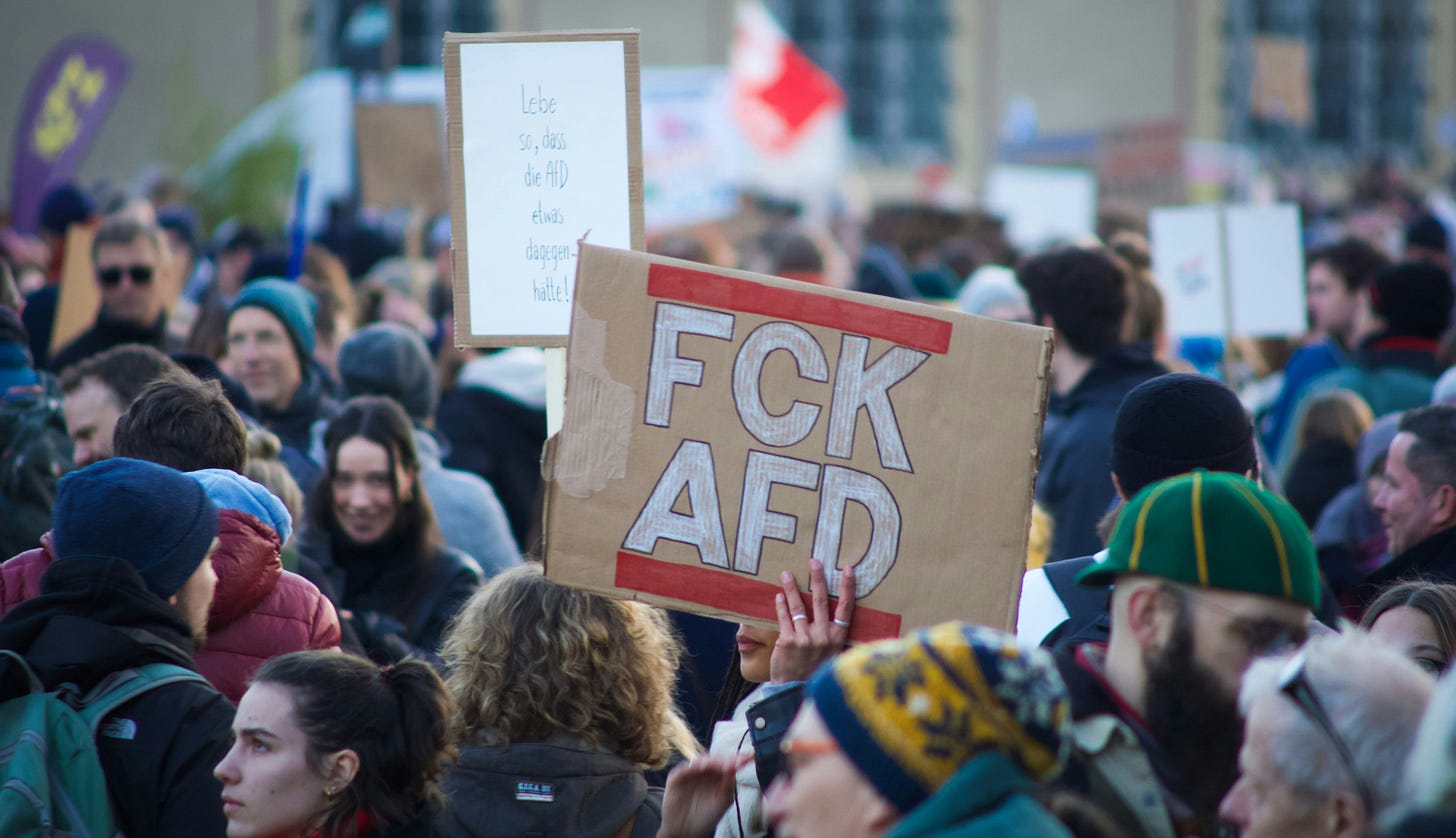A French person living in Paris I met while traveling recently told me how impressed they were by Germany’s massive protests against the far-right party AfD, and how lucky I was to live in a country that so adamantly rejects fascism. I so wish they were right.
Over the past eighteen months, Germany has consistently demonstrated that while it may stage gr…
Keep reading with a 7-day free trial
Subscribe to The Big Shift - by Emilia Roig to keep reading this post and get 7 days of free access to the full post archives.





